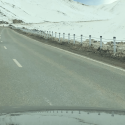Winter Driving Safety Tips
As we pull our winter gear out from the back of the cupboard, ready to use on those colder days. We know that we need to prepare ourselves for the colder weather. Have you ever thought about preparing your car for winter driving? There are a few things you can do to prepare your car for winter, which might save you time and money as well as reducing your risk of being involved in an accident on the road.
- Check your tyres – Make sure you have plenty of tread on your tyres and that there are no worn patches (which indicate the wheels are out of alignment). Consider replacing any borderline tyres. Try and buy the best quality tyres that you can afford – ask your local tyre dealership what they would recommend for your location and vehicle, and the type of driving you do.
- Check your windscreen wipers – It’s good practice to regularly check your windscreen wipers to make sure they aren’t damaging your windscreen. Autumn is a great time to perform an annual check and replacement of your wiper blades. A new, good quality set will perform better at moving snow and ice off of your windscreen.
- Check your windscreen for chips or cracks – Freezing temperatures in winter can make existing windscreen chips or cracks much worse, possibly leading to the need for a new windscreen. Whilst you are checking your windscreen wipers, take a look over your windscreen and make sure to get any chips or cracks repaired before the cold weather sets in.
- Pack an emergency kit – You never know when a breakdown or accident may occur – it pays to be prepared. You might already have some of these things in your car, consider putting them altogether into an emergency kit:
- First aid kit
- Jumper leads
- Gloves
- Foldable shovel
- Torch
- Heavy blanket
- Ice scraper
- Snacks and Water (e.g. muesli bars, crackers)
Driving in Snow and Ice
Even the most experienced drivers can get caught out by the unpredictability of driving in snow and ice. Follow the safety tips below to keep yourself and others as safe as possible whilst driving in winter.
- Know when it’s time to stay home – Pay attention to your local weather reports and watch for road snow/ice warnings. If it is recommended that people stay off the roads, stay home when you can.
- Lights on – This seems like common sense, however many people don’t put their headlights on during winter day time. Having your lights on will help you to be seen by other road users, so it pays to have your headlights on during the daytime in winter but especially if it is dull, raining or snowing.
- Drive slowly – Again, this seems like common sense, however many people feel pressured to drive “to the speed limit” even during poor weather conditions. The slower you drive in snow, ice and rain means the more time you have to make adjustments if required – or to stop if needed. Always approach intersections slowly, as there may be unseen ice on the road.
- Drive defensively – You may have a modern vehicle with features such as traction control and all wheel drive, these things help whilst winter driving however it doesn’t take away the need to be focused at all times. Make sure you give other road users more room than you normally would and look out for hazards such as ice, surface flooding or other vehicles stopped on the road.
Accidents Happen: What to Do if it Happens to You
So you follow all the winter driving safety tips, but unfortunately you are involved in a wintertime accident. Or perhaps you are the first on scene to an accident involving others. It pays to know what you would do should an accident occur, and the tips below can help:
- Check for dangers around the site of the accident and put your car hazard lights on if you are able to.
- Help others if you can – provide first aid if you feel comfortable doing so. Only provide help if it is safe for you to do this. Don’t put yourself in further danger.
- If the crash is serious, causing a road blockage, or if there are injuries, you must send for help – either call emergency services yourself or ask another person on scene to do so.
- If you are in a car crash in NZ you must report it to the police within 24 hours.
- If you need to wait for emergency services, you may make use of your emergency kit at this time.
- Remember to exchange insurance details with others involved in the crash if it is appropriate to do so.
There are a lot of steps you can take to prepare yourself and your car for winter driving conditions. If, during your pre winter safety check you notice a chip or crack on your windscreen please remember that Fast Autoglass offer guaranteed workmanship on all auto glass repairs and replacements in Christchurch and Canterbury. We offer a high quality, fast and efficient service and have expertise in a range of auto glass solutions. We have a workshop that is centrally located in Christchurch and also offer a convenient mobile service. Contact us for all your auto glass repair needs.


